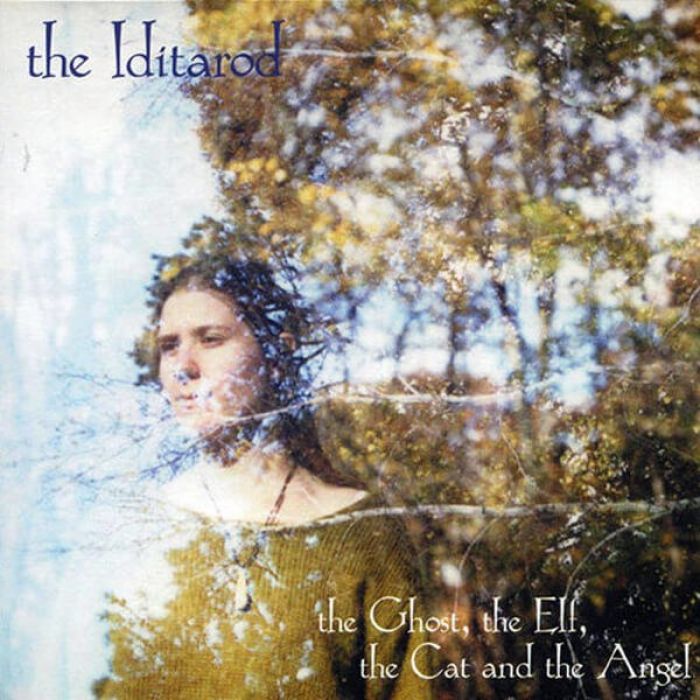The Ghost, The Elf, The Cat and The Angel by The Iditarod (Review)

Listening to The Iditarod, it’s tempting to thing that you’ve stumbled across the long lost recordings of some ancient gypsy tribe, that these songs are the last remainders of a wandering folk whose ways and traditions were lost sometime around the Industrial Revolution. In reality, The Iditarod are actually the duo of Carin Wagner and Jeffrey Alexander (with a rotating cast of supporting players) from the wildwoods of Rhode Island. But while their bodies live in New England, their hearts, minds, and songs are clearly still in the Old Country.
By Old Country however, I’m not referring to the sort of stuff you see in your finer Renaissance Fairs, so let’s get those references out of the way, shall we? The Iditarod is more indebted to the sort of music one can only imagine coming from Germany’s Black Forest, the windswept coastlands of Scandinavia, the pastoral highlands of England.
While The Iditarod’s songs are acoustic-based, they delve quite deeply into atmospherics and psychedelia, especially elements of drone that hint at a middle-eastern influence as well. On “Afternoons Like This Are Hard To Come By,” drones circle and hover above starkly plucked acoustic guitars and Wagner’s earthy vocals, creating an uneasy tension in the song. It was this tension that made this song the first on the album to really grab me. But once I noticed it, it was nearly impossible to ignore. Meanwhile, “Raga (In D#)” is pure drone; starting off with a moonlit forest journey, the listener suddenly finds themselves transported to desert bazaar in the midst of some manner of religious procession.
This sense of unease flows throughout the album, and it reminds you that many of the old folk songs we hear today in fact came from rather dark origins. While they may be sung with jaunty accompaniment, their lyrics take another route. Take, for example, “Let No Man Steal Your Thyme,” a warning to young lasses about men and their roving hands. And “The Unfortunate Lass” closes the album on a downbeat note, the story of a woman who lets a man get at her thyme, and winds up losing her life, a la Nick Cave’s Mary Bellows.
Elsewhere, the sense of tension is traded for one of outright spookiness. “Cycle Circle“ ‘s muffled rhythms and ringing bells sound creepy enough, but Wagner’s whispered vocals make it sound rather incantation-like. Although Current 93 and other World Serpent comparisons are fairly valid throughout the entire album, this track makes them almost tangible.
Even with the music’s creepier explorations, or maybe because of them, there’s a spectral quality to this album that’s hard to ignore. True, the atmospherics on display in “The Falling Of The Pine” certainly up the album’s ephemeral mood. But even the album’s earthier aspects give this album a unique feeling. The best example of this is Wagner’s voice. While quite lovely, it never delves into the sort of bad Liz Frazier and Lisa Gerrard impersonations you might expect.
Rather, I’m reminded of Low’s Mimi Parker, whose voice also contains a weary, natural beauty. Wagner’s voice has its rough edges, but that just adds to the feeling that you’re listening to something ancient and worldly, when people were more conscious of the waxing and waning of the sun and the moon, the courses of the stars, and when an eclipse meant something far more foreboding than just a predictable astronomical occurrence.
In many ways, these songs resemble a musical patchwork cloak, with influences stitched together from various sources. At times, it almost looks like the thing will come undone, especially on the first couple of listens. But in time, their simple, otherworldly charms find a way of burrowing under your skin, of winding their way into your imagination. Many similar acts often fall into pretense but The Iditarod’s craft and skill make this an entirely natural, authentic listen, regardless of whether their songs were written three years ago or three hundred.